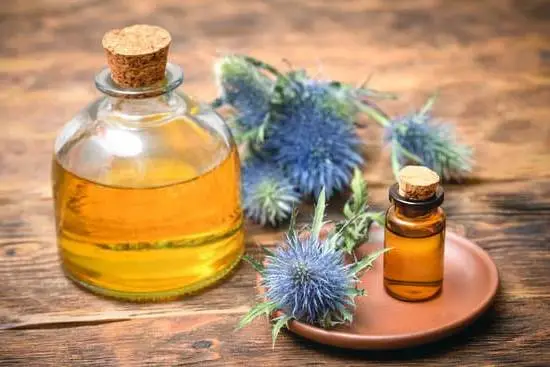Aromatherapy has gained significant popularity in recent years, with many individuals turning to essential oils for their purported therapeutic benefits. The question of whether it is safe to rub aromatherapy oils directly on the skin is a common one. In this article, we will delve into the world of aromatherapy, exploring the different types of oils, their potential benefits, and the safety precautions to consider when using them topically.
Aromatherapy oils, also known as essential oils, are highly concentrated plant extracts that are used for their aromatic and medicinal properties. They have been used for centuries in various cultures for their potential healing effects on the mind, body, and spirit. Today, aromatherapy has found its way into mainstream wellness practices, from holistic medicine to spa treatments.
One of the most common ways people use essential oils is by applying them directly to the skin. However, it is crucial to understand the potential risks and safety precautions associated with this practice. In this article, we will provide an in-depth exploration of using aromatherapy oils topically and offer guidelines for safe application methods.
Understanding Aromatherapy Oils
Aromatherapy oils, also known as essential oils, are highly concentrated extracts derived from plants. These oils are used for various therapeutic purposes, including promoting relaxation, alleviating stress, and enhancing overall well-being. The practice of using aromatherapy oils has been gaining popularity in recent years due to the increasing interest in natural and holistic health remedies.
There are different types of aromatherapy oils available, each with its own unique properties and potential benefits. Some commonly used essential oils include lavender, peppermint, eucalyptus, tea tree, and chamomile. These oils can be used topically, inhaled, or even ingested (although ingestion should only be done under the guidance of a qualified professional). When it comes to using aromatherapy oils on the skin, it is important to choose high-quality oils that are pure and free from synthetic additives.
When utilizing any type of aromatherapy oil for skin application, it’s crucial to understand the importance of proper dilution. Essential oils are extremely potent and can cause skin irritation or other adverse reactions if applied directly at full strength.
Diluting the oils with a carrier oil such as coconut oil or sweet almond oil can help reduce the risk of irritation while still providing the desired benefits. Seek advice from a qualified aromatherapist regarding appropriate dilution ratios for specific essential oils.
In addition to proper dilution, it is essential to consider potential risks and side effects associated with applying aromatherapy oils directly on the skin. Some individuals may experience allergic reactions or sensitivities to certain essential oils.
It’s also important to be mindful of photosensitivity when using citrus-based essential oils on the skin. Following safety guidelines and consulting with a healthcare professional before using aromatherapy oils can help mitigate these risks and ensure safe usage can you rub aromatherapy oils on your skin.
Safety Precautions
Aromatherapy oils are highly concentrated extracts from plants, flowers, and herbs that are used for their therapeutic properties. These potent oils have gained popularity in recent years due to their potential to promote relaxation, improve mood, and alleviate various ailments. However, when it comes to using aromatherapy oils on the skin, it is essential to exercise caution and be aware of the associated safety precautions.
One of the most important safety precautions when using aromatherapy oils on the skin is the necessity of dilution. Pure essential oils are too strong to be applied directly to the skin and can cause irritation or allergic reactions. Diluting them with a carrier oil such as coconut oil, jojoba oil, or almond oil helps reduce the risk of adverse reactions while still allowing for effective absorption.
It is also crucial to consider the potential risks and side effects of applying oils directly on the skin. Some individuals may be more sensitive or allergic to certain essential oils, leading to skin irritation or other adverse effects. Additionally, certain oils may increase photosensitivity and make the skin more susceptible to sunburn. Understanding these risks can help prevent any negative outcomes from using aromatherapy oils topically.
| Aromatherapy Oils | Typical Uses |
|---|---|
| Lavender | Relaxation, sleep aid, skin soothing |
| Tea Tree | Antibacterial, acne treatment |
| Peppermint | Headache relief, muscle pain relief |
Benefits of Rubbing Aromatherapy Oils on Your Skin
When it comes to using aromatherapy oils on your skin, there are numerous potential benefits that can be experienced. The skin is the largest organ of the body and is capable of absorbing the therapeutic properties of essential oils, making topical application a popular method for enjoying their benefits. Aromatherapy oils can be beneficial for various skin conditions, including dryness, irritation, and aging. They also have the potential to promote relaxation, relieve muscle tension, and improve overall well-being.
One of the main advantages of rubbing aromatherapy oils on your skin is that they have the ability to penetrate into the bloodstream through the pores. This allows the active compounds in the oils to reach different areas of the body and produce their desired effects.
For example, lavender oil is known for its calming properties and can help reduce stress and promote better sleep when applied topically. Similarly, tea tree oil has antibacterial and anti-inflammatory properties that can be useful for treating acne and soothing irritated skin.
It’s important to note that not all essential oils are safe for direct skin application, as some may cause irritation or allergic reactions. Therefore, it is crucial to conduct thorough research or seek guidance from a qualified aromatherapist before using any new oil on your skin. Patch testing is also recommended to ensure that you do not have a negative reaction to a particular oil.
In addition to their potential physical benefits, rubbing aromatherapy oils on your skin can also have psychological effects. The act of massaging the oils onto your skin can be relaxing and comforting, providing a sensory experience that promotes mental well-being. Whether used for skincare purposes or as part of a holistic wellness routine, applying aromatherapy oils on your skin can be a nurturing practice with multifaceted benefits.
| Benefits | How They Work |
|---|---|
| Potential benefits for various skin conditions | The oils penetrate into the bloodstream through the pores |
| Can promote relaxation and alleviate muscle tension | Best applied with massaging techniques for psychological benefits |
| Possess antibacterial and anti-inflammatory properties | Avoid direct application to damaged or broken skin |
Best Practices for Applying Aromatherapy Oils on Your Skin
When it comes to using aromatherapy oils on the skin, there are certain best practices that should be followed to ensure safety and effectiveness. Whether you are using essential oils for relaxation, skincare, or other therapeutic purposes, proper application is key. Here are some best practices for applying aromatherapy oils on your skin.
Step-by-Step Application
One of the most important aspects of using aromatherapy oils on the skin is proper application. It’s essential to dilute the essential oil with a carrier oil before applying it to the skin. A common dilution ratio is 2-3 drops of essential oil per teaspoon of carrier oil. This helps prevent skin irritation and sensitivity. Once diluted, the oil can be applied to the skin through gentle massage or by dabbing it onto specific areas.
Patch Testing
Before applying any new aromatherapy oil to a larger area of your skin, it’s crucial to perform a patch test. This involves applying a small amount of diluted oil to a discreet area of your skin and monitoring for any adverse reactions over 24-48 hours. This step can help identify any potential allergies or sensitivities before widespread use.
Applying to Specific Areas
Certain areas of the body may benefit more from the application of aromatherapy oils. For example, pulse points such as the wrists, temples, and neck are common areas for applying oils due to their increased blood circulation and warmth. However, some oils may also be beneficial when applied directly to specific areas of concern, such as acne-prone areas or dry patches of skin.
Following these best practices can help ensure safe and effective use of aromatherapy oils on the skin. By taking these precautions, individuals can experience the potential benefits of topical application while minimizing any potential risks or side effects that can arise from improper usage.can you rub aromatherapy oils on your skin.
Popular Aromatherapy Oils for Skin
Aromatherapy oils have gained popularity for their potential benefits in promoting holistic well-being. Many people enjoy using these oils for various purposes, including relaxation, stress relief, and skincare. When it comes to skincare, some individuals wonder, “Can you rub aromatherapy oils on your skin?” The answer is yes, but it is essential to understand the best practices and safety precautions for doing so.
Understanding the different types of aromatherapy oils can help in selecting the best options for skincare. Some popular choices for skin health include:
- Lavender oil: Known for its calming and soothing properties, lavender oil can be beneficial for promoting skin relaxation and reducing inflammation.
- Tea tree oil: With its antimicrobial and anti-inflammatory properties, tea tree oil is commonly used to address acne and other skin conditions.
- Rosehip oil: Rich in antioxidants and vitamins, rosehip oil can help nourish the skin and improve its overall appearance.
Before applying aromatherapy oils directly on the skin, it is crucial to dilute them properly with a carrier oil like coconut or jojoba oil. Undiluted essential oils are potent and can cause adverse skin reactions if applied directly. Additionally, conducting a patch test before widespread application can help identify any potential allergic reactions.
When applying aromatherapy oils on the skin, it is important to consider the specific area of the body where they will be most effective. For example, some individuals may prefer applying lavender oil on their temples or pulse points for relaxation, while tea tree oil may be more suitable for targeting specific blemishes or irritations on the skin.
Alternatives to Direct Skin Application
When it comes to using aromatherapy oils, direct skin application is not the only method available. There are several alternatives that can be just as effective in reaping the benefits of these oils. Each alternative method offers its own unique advantages and can cater to different preferences and needs.
Diffusing Oils and Inhalation
One popular alternative to rubbing aromatherapy oils on your skin is diffusing them into the air or inhaling them directly. This method involves using a diffuser to disperse the aroma of the oils throughout a room, creating a calming and soothing atmosphere.
Additionally, inhaling the scent of essential oils
Using Oils in Baths and Massages
Another effective way to utilize aromatherapy oils without applying them directly to the skin is through baths and massages. Adding a few drops of essential oil to a warm bath
Similarly, incorporating essential oils into massage oil enhances relaxation, eases muscle tension, and promotes overall well-being without needing direct skin application.
Considerations for Alternative Methods
When opting for alternative methods of using aromatherapy oils, it’s important to consider factors such as personal preference, desired outcome, and any specific health concerns or sensitivities. Each individual may respond differently to various applications, so it may be beneficial to experiment with different methods to find what works best for you.
Whether it’s diffusing oils, enjoying a relaxing bath, receiving a massage with essential oils, or another creative approach, there are numerous ways to experience the therapeutic benefits of aromatherapy beyond direct skin application.
Conclusion
In conclusion, the use of aromatherapy oils on the skin can provide numerous benefits for overall wellness and skin health. However, it is crucial to exercise caution and follow safety guidelines when using these oils topically. While essential oils have gained popularity for their therapeutic properties, it is important to understand that they are highly concentrated and potent substances that should be used with care.
When using aromatherapy oils on the skin, it is essential to dilute them properly to minimize the risk of adverse reactions. Additionally, conducting a patch test before widespread application can help determine any potential sensitivities or allergies. Choosing high-quality oils from reputable sources is also paramount in ensuring their effectiveness and safety for use on the skin.
It is recommended to seek professional guidance, especially for individuals with specific skin conditions or health concerns. Consulting with a qualified aromatherapist or healthcare provider can help determine the most suitable oils and methods of application for individual needs. Overall, when used responsibly and in accordance with best practices, incorporating aromatherapy oils into skincare routines can be a beneficial addition to promoting overall well-being and skin health.
Frequently Asked Questions
Can You Use Aromatherapy Oil on Skin?
Yes, aromatherapy oils can be used on the skin, but it’s essential to dilute them with a carrier oil before applying. This helps prevent potential skin irritation or sensitization from the concentrated essential oils.
What Happens When You Rub Essential Oils on Your Skin?
When you rub essential oils on your skin, they can be absorbed into the bloodstream through the capillaries in the skin. This can lead to various effects, such as relaxation, mood improvement, or relief from minor discomforts when using appropriate oils.
Can You Use Aromatherapy Oils Topically?
Aromatherapy oils can indeed be used topically for a variety of purposes, such as promoting relaxation, addressing minor skincare concerns, and providing relief from muscle tension. However, it’s crucial to use them safely by following proper dilution guidelines and conducting a patch test beforehand to check for any adverse reactions.

Are you looking for a natural way to improve your health and wellbeing?
If so, aromatherapy may be the answer for you.





